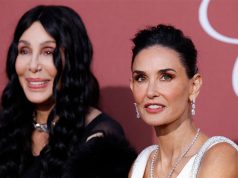
Human Rights Watch seeks the government’s creation of a public education campaign about HIV, as well as an awareness campaign for persons living with HIV to know their rights regarding workplace discrimination.
In what Human Rights Watch researcher Carlos Conde calls a “double whammy,” persons living with HIV are afraid that they cannot seek justice should they be discriminated against in the workplace.
Consider:
“Keren,” 39, was a warehouse supervisor for a sports brand in Manila. In April 2012, he was diagnosed with HIV and had to quit his job. His bosses had earlier warned him and his co-workers that if any of them contracted HIV, they would immediately be dismissed and would not have any termination benefits.
Since then, Keren has applied to different manufacturing and clothing companies, but still hasn’t found a job.
He believes this is because employers refuse to hire applicants who are living with HIV.
In one instance, he applied for a job at a different warehouse.
“In the interest of disclosure, I told the vice-president of the company that I have HIV… She shoved aside all the papers that I had touched during that meeting, took out a plastic bottle of alcohol, and washed her hands with it right in front of me,” he recalled.
As expected, they did not offer him the job.
“It’s difficult to find a job these days with my condition because I have to disclose my status so I can have a schedule that is good for my health, that fits my [medical] condition. But if I disclose my condition, chances are I won’t get hired,” Keren lamented.
This is just one of the 33 stories documented by Human Rights Watch in a report it published last week, “Philippines: Discrimination Against Workers with HIV”.
The Philippines has the fastest-growing HIV infection rate in Asia-Pacific, with Human Rights Watch noting that the number of new cases spiked from only four a day in 2010, to 31 a day by November 2017. There are now at least 49,733 HIV cases in the country, with most new infections occurring among men who have sex with men, or transgender women who have sex with men.
Examples of discrimination include refusal to hire, like Keren experienced, unlawful firing, and forced resignation.
The report points out that there are even employers who disregard or actively facilitate harassment of such employees.
“In most of the discrimination cases that Human Rights Watch documented, employees with HIV did not file formal complaints, most frequently due to fear of being further exposed as HIV positive, which could prevent future employment,” the human rights group says. “They also said they thought that pursuing cases against employers would be cumbersome and costly, with some believing that their employers were powerful people who could frustrate any attempts to complain. Others said that they simply did not know whom to approach for help. Other reasons put forward were the need to just move on or that their families discouraged them from pursuing cases because of potential shame to the family.”
In this regard, Conde urged the government to “ensure that people living with HIV get better protection in their jobs and that the public gets more and better information on HIV.”
While the country has a law regarding HIV and AIDS criminalizing workplace discrimination against people living with HIV, Human Rights Watch says “there is little evidence that the government is adequately enforcing the laws to prevent and punish workplace discrimination.”
The Philippine AIDS Prevention and Control Act of 1998, or Republic Act 8504, criminalizes discrimination against people living with HIV in the workplace “in any form, from pre-employment to post-employment, including hiring, promotion or assignment, based on the actual, perceived, or suspected HIV status of an individual.”
Also illegal is termination from work just on the basis of actual or perceived HIV status, Human Rights Watch says. “The law also requires employers to enforce the HIV and AIDS Prevention and Control in the Workplace Program, which protects employees with HIV from discrimination.”
However, the Department of Labor and Employment itself admits that enforcement, through workplace inspections, is inadequate.
“We are spread thin,” Human Rights Watch cites Dr. Mart Valeros, who oversees the enforcement of the HIV policy, as saying. “We simply lack the personnel.”
At the same time, Human Rights Watch assails the government for creating “obstacles to access to condoms and HIV testing, and limit[ing] educational efforts on HIV prevention.”
President Rodrigo Duterte himself has voiced his dislike for condoms, which the World Health Organization, among others, has said is integral in the prevention of HIV.
In pushing for family planning among overseas Filipino workers who were repatriated from Kuwait last Tuesday, Duterte said, “Kasi kung sana na medyo 50 million lang tayo, ma-manage natin ‘yung pagkain. Enough for all, tapos may trabaho. Hindi ako nagpapatawa, sumunod na lang kayo sa programa ng gobyerno. May pills libre (Because if we were around 50 million people only, we would be able to manage our food. It would be enough for all, and there would be jobs. I’m not kidding, just follow the government program. There are pills for free),” he said. “Huwag ‘yang condom kasi hindi masarap ‘yang condom (Just don’t use a condom because condoms aren’t pleasurable).”
Another issue is the lack of education about HIV transmission and safe sex. “For example, millions of Filipinos are not sufficiently educated about the role of condoms in preventing HIV transmission,” the report says.
“The workplace experiences of people living with HIV bring to light the tragedy within a tragedy of the HIV epidemic in the Philippines. The Duterte administration will need to act to ensure that the increasing numbers of people with HIV don’t result in ever greater workplace discrimination,” Conde says.
Read the full report here: https://www.hrw.org/news/2018/02/09/philippines-discrimination-against-workers-hiv.









